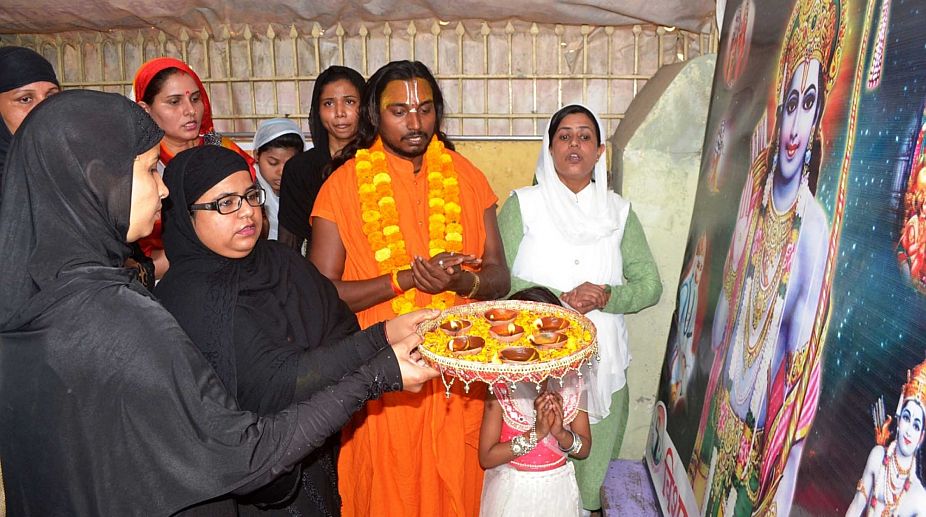Emphasising that the construction of a Lord Ram statue in Ayodhya was a matter of pride for all Indians, the Uttar Pradesh Shia Central Waqf Board has said that it would gift 10 silver arrows for his quiver as a mark of respect.
“The UP government’s decision to erect a statue of Lord Ram is commendable. In keeping with the ‘Ganga-Jamuni tehzeeb’ of Awadh, these silver arrows will be just a token of admiration and esteem in which the Shias hold Lord Ram,” the board’s chairman Waseem Rizvi said in a letter to Chief Minister Yogi Adityanath.
Advertisement
The construction of the statue would put UP on the world map, he said. Rizvi’s statement is significant as it comes in the wake of criticism of the UP government’s proposal by the All India Muslim Personal Law Board (AIMPLB) member Zafaryab Jilani and All India Majlis-e-Ittehadul Muslimeen (AIMIM) chief and Hyderabad MP Asaduddin Owaisi. Both leaders termed the move as “illegal and unconstitutional”, saying that in a secular country, a government cannot involve or associate itself with a project like this (building the statue of a deity).
“The Nawabs of this region always respected the temples in Ayodhya. So much so that the land for Hanuman Garhi in central Ayodhya was donated by Nawab Shuja-ud-Daulah in 1739, while the funds to construct the Hanuman Garhi temple were provided by Nawab Asif-ud-Daullah, between 1775 and 1793,” Rizvi pointed out.
Earlier, he had welcomed the Adityanath government’s move to build a 100-metre-high statue of Lord Ram on the banks of Saryu river in Ayodhya.
The Shia Board is one of the parties in the appeals pending in the Supreme Court pertaining to the Ram Janmabhoomi-Babri Masjid case. Rizvi had earlier filed an affidavit before the Supreme Court saying that the Shia board had no problem if the mosque was built at a reasonable distance from the 2.73-acre disputed land, preferably in a Muslim dominated locality, in Ayodhya.
The Shia Board had also claimed in an affidavit that the land, on which Babri Masjid had stood before it was demolished by a frenzied mob on December 6, 1992, belonged to it and that only it was entitled to negotiate an amicable solution with the consent of all stakeholders.
The Ram Janmabhoomi-Babri Masjid issue has been pending in the Supreme Court since 2010, after the Allahabad High Court divided the land equally among ‘Ram Lalla’, the Nirmohi Akhara and the Sunni Central Waqf Board.











